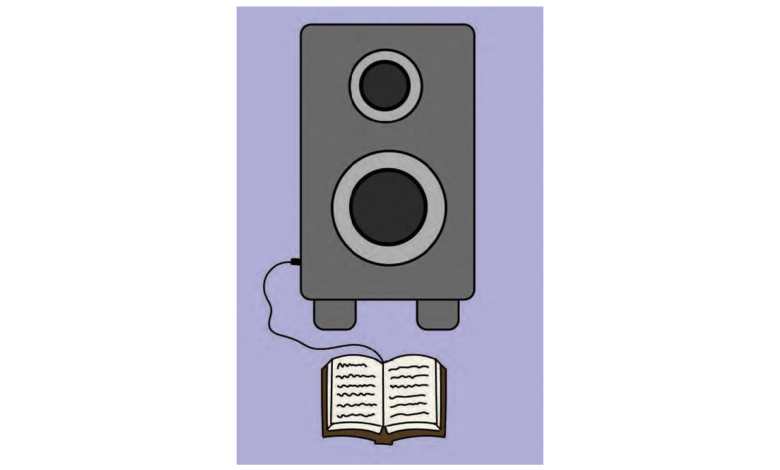
Text to speech: inclusivity in academics
By Sarah F. Griffin
ON Oct. 18, I went to see my philosophy professor to clear up my last-minute questions for the midterm the next day.
After he answered my questions, he instantly earned cool-professor points when he pulled up his desktop and showed me that he had changed his computer assistant’s voice to that of Taylor Swift. This wasn’t a random piece of information – we had previously shared our appreciation for the singer with each other.
After this encounter, I got to thinking: I would probably be doing much better with understanding “The Complete Works of Plato” and “A New Aristotle Reader” if there were official audiobooks that Rider provided for all students.
As someone with a minor processing disability, I use the app SpeechBot to create audio versions of all my readings for school that do not already have an audiobook; however, the app is not perfect, and there have been quite a few times where the app has gotten the order of lines wrong, forcing me to go back and reread the lines that AI confused.
Although I know that I am an adult and part of my responsibilities is finding a way to read and understand all my school work, I don’t think it should be on me to find tools like expensive audio textbooks in order to succeed, especially because the tools I do find are not up to par.
It seems like Rider is starting to agree with me.
In late October, the Franklin E. Moore Library announced that they are bringing the Palace Project app to the university.
The Palace Project, which is funded by the New Jersey State Library, provides access to over 19,000 “Reading for Fun” ebooks/audiobooks,” stated Electronic Resources & User Access Librarian Sharon Whitfield in a university-wide email on Oct. 18.
I’ll hand it to Rider: this is a good start; however, I hope that they know there is still a large load of work that needs to be done if they want to be inclusive of students with processing disabilities or anyone who has a little trouble understanding what they read.
Nineteen thousand books are not nearly enough; we need every book that Rider’s courses require.
One other major issue with the library’s plan is that currently, there is no list available on the university’s website of the books that are a part of the app.
Unfortunately, we live in a world where being completely inclusive of disabled people is a process. While it is good that Rider is attempting to continue the process, I encourage them to realize that what they are doing is the bare minimum, and I hope that they are smart enough to keep moving forward.



